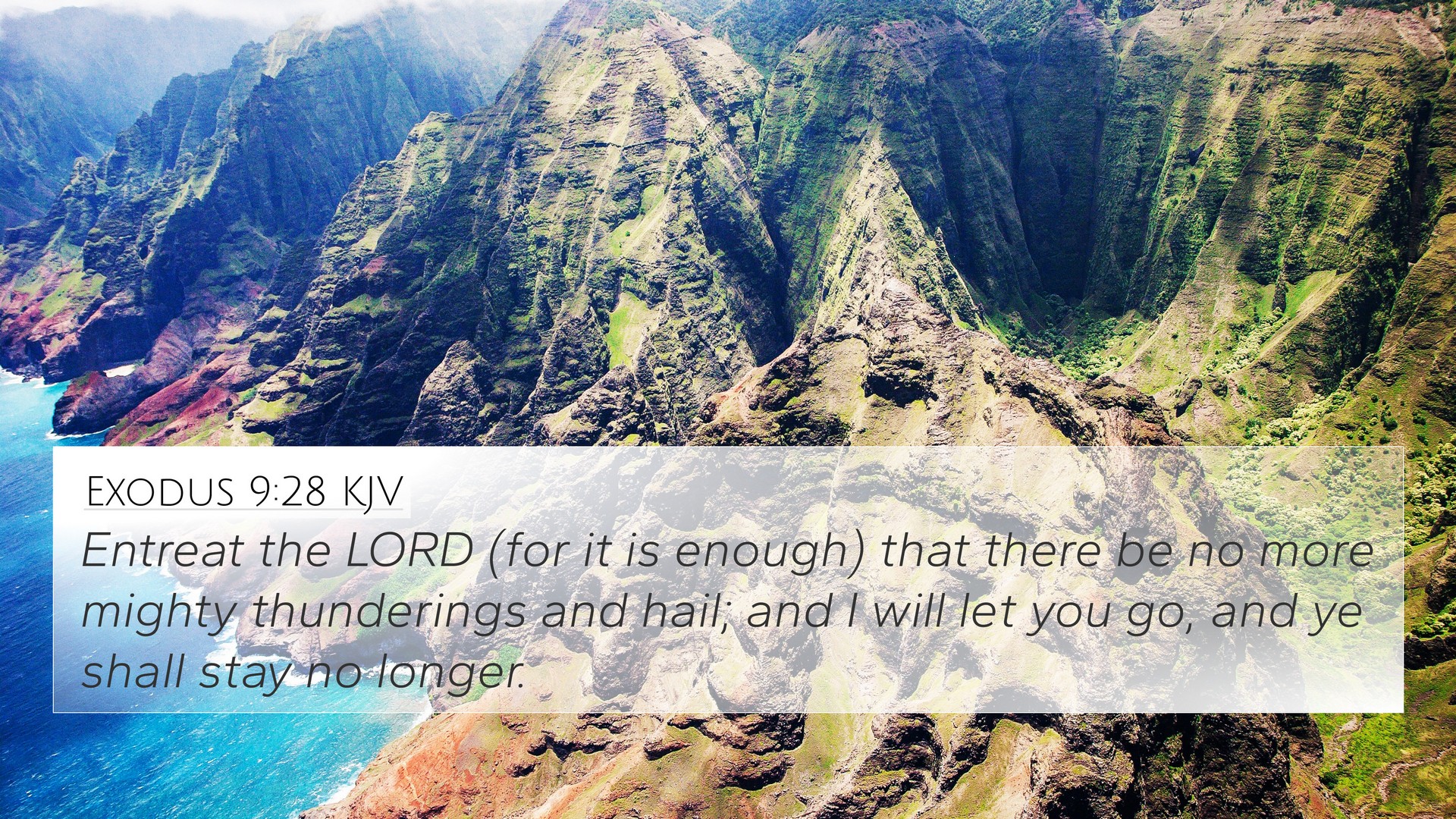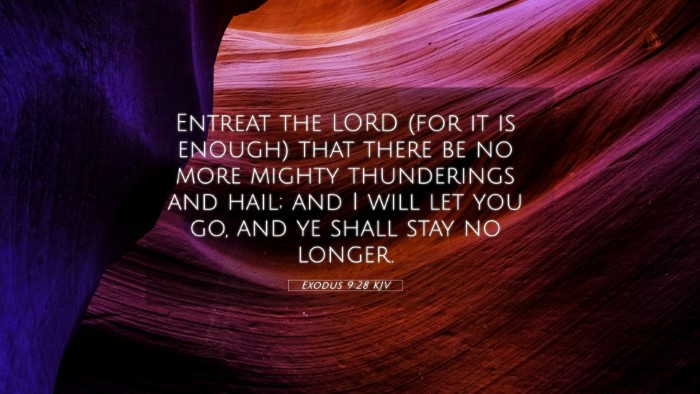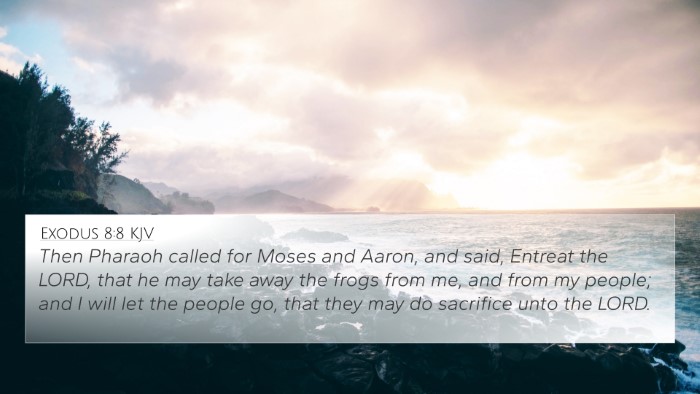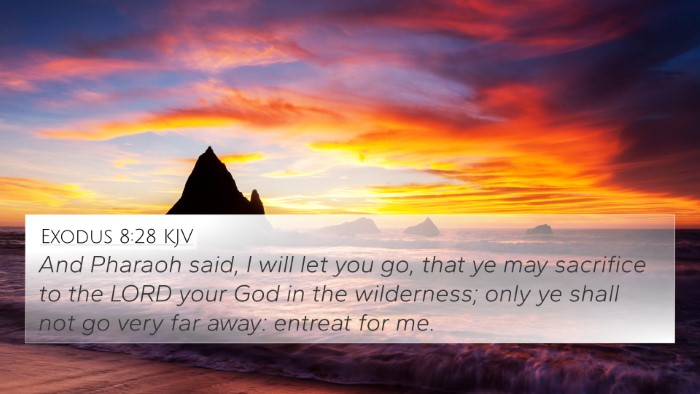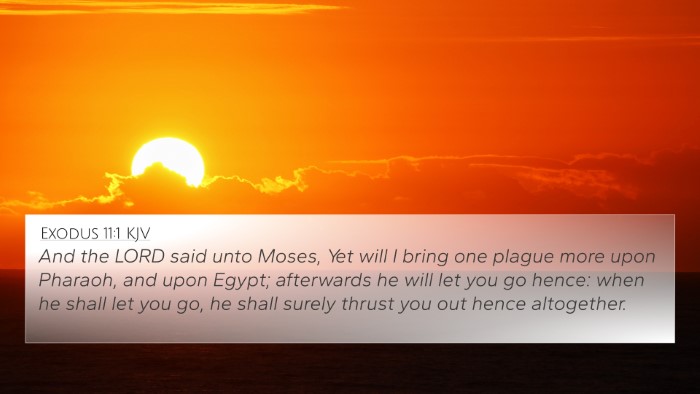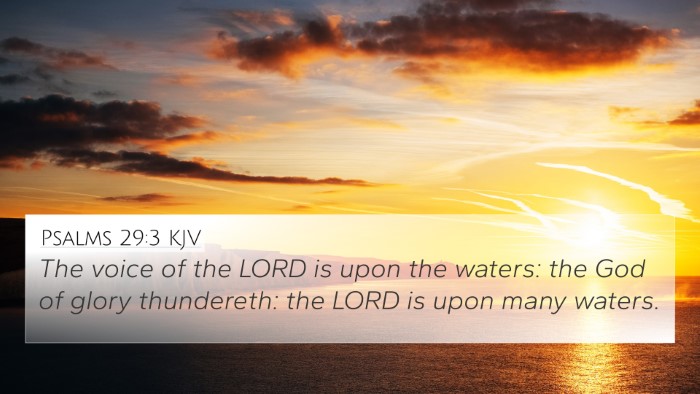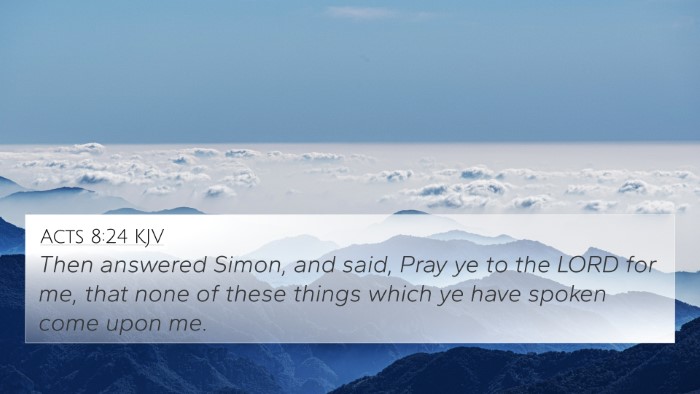Understanding Exodus 9:28
Bible Verse: Exodus 9:28 - "Entreat the Lord, for it is enough that there be no more mighty thunderings and hail; and I will let you go, and you shall stay no longer."
Summary of Interpretation
This verse is a pivotal moment in the narrative of the Exodus, where Pharaoh acknowledges the overwhelming might of God manifested through the plagues. It reveals a dual theme of human pride and divine authority, illustrating the struggle between Moses, as God's representative, and Pharaoh, who embodies resistance to God's will.
Key Points from Commentaries
-
Matthew Henry:
Henry emphasizes Pharaoh's moment of weakness in the face of God's power. He notices how Pharaoh, previously obstinate, begins to recognize that the plagues' severity calls for repentance. This verse marks a significant shift in Pharaoh's attitude, showing that even the most hardened hearts can be touched by divine intervention.
-
Albert Barnes:
Barnes points out that Pharaoh's request indicates a recognition of his limits and the futility of resisting God's will. He notes that this plea reflects a temporary fear of God's judgment rather than true repentance. The emphasis on him wanting the thunderings to cease shows his desperation to regain control.
-
Adam Clarke:
Clarke elaborates on Pharaoh's acknowledgment of God’s power and the impending consequences of his refusal to comply. He discusses the theological implications of prayer, highlighting that even those who oppose God may seek His mercy when faced with judgment. Clarke also draws attention to the broader spiritual themes of mercy and humility.
Connections to Other Bible Verses
Exodus 9:28 is richly connected to multiple other scriptures, enabling deeper understanding through cross-references. Here are some relevant verses:
- Exodus 10:16 - Pharaoh's further acknowledgment of sin against God.
- Psalm 105:31 - Reference to God's power in sending plagues.
- 1 Samuel 12:18 - A similar appeal to God when faced with thunder and rain.
- Revelation 16:21 - A future reference to God’s judgments through hail.
- Isaiah 53:5 - Connections can be drawn regarding suffering and atonement.
- Romans 9:17 - Paul references Pharaoh to illustrate God's purpose in hardening hearts.
- James 5:16 - The power of righteous prayer, mirroring Moses’ intercession.
Thematic Connections
This verse touches on numerous themes that are present throughout the Bible:
- Divine Authority: The sovereignty of God is showcased through the plagues, demonstrating His power over nature and rulers.
- Repentance: Pharaoh’s request, though self-serving, highlights the human condition of recognizing sin when confronted by divine judgment.
- Intercessory Prayer: Moses’ role as an intercessor foregrounds the biblical principle that prayer can influence outcomes in the lives of individuals and nations.
- Judgment and Mercy: The interplay between God's judgment on sin and the opportunity for mercy reveals God's character throughout scripture.
Tools and Methods for Cross-Referencing
Understanding Exodus 9:28 and its connections requires tools for Bible cross-referencing. Here are some recommended methods and resources:
- Utilize a Bible Concordance to find words and themes associated with Exodus 9:28.
- Employ a Bible Cross-Reference Guide to explore related scriptures.
- Participate in Cross-Reference Bible Study groups for in-depth discussions.
- Explore Online Bible Reference Resources for thematic studies and cross-referencing.
Final thoughts
Exodus 9:28 serves as a profound reminder of the importance of recognizing God’s authority in our lives. As we delve into this verse and its connections through effective Bible study methods, we uncover a fuller picture of the divine narrative woven through scripture. Between the inter-Biblical dialogues and thematic linkages, we are invited to explore a deeper faith journey guided by God’s ultimate mercy and sovereignty.
